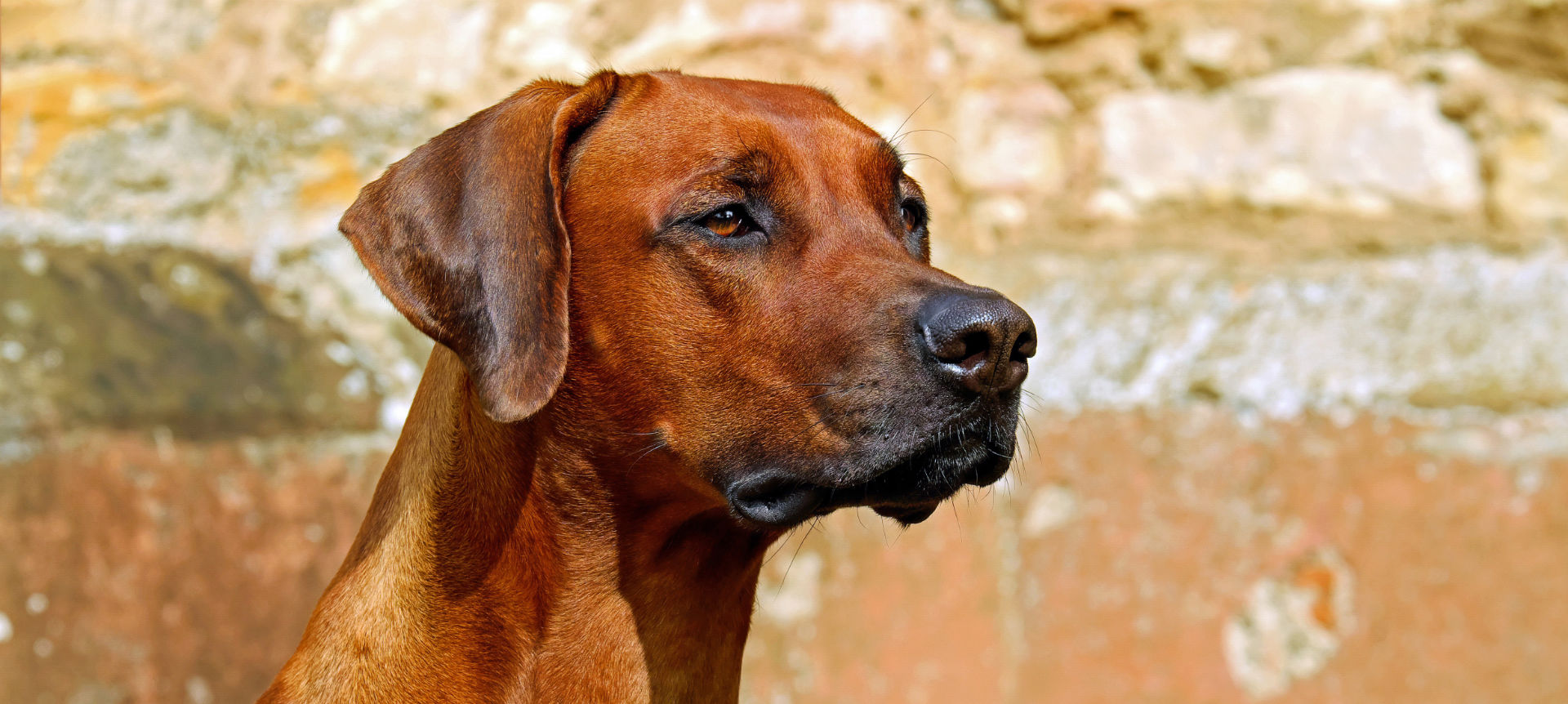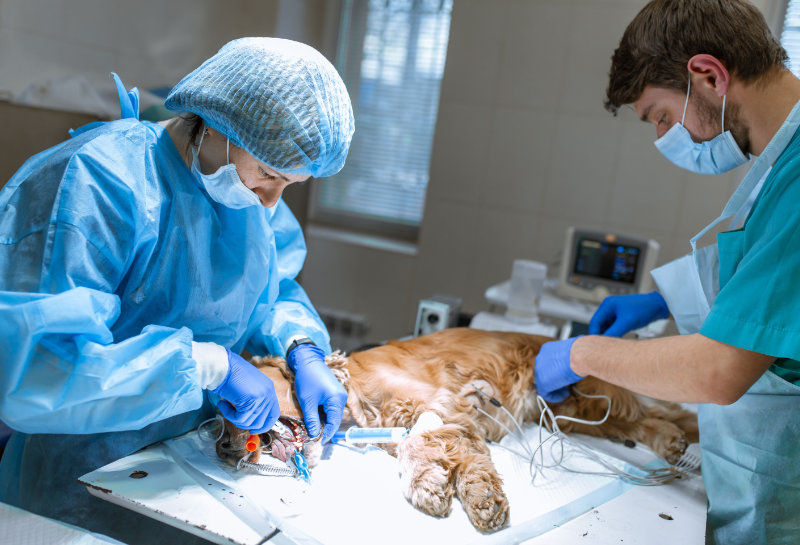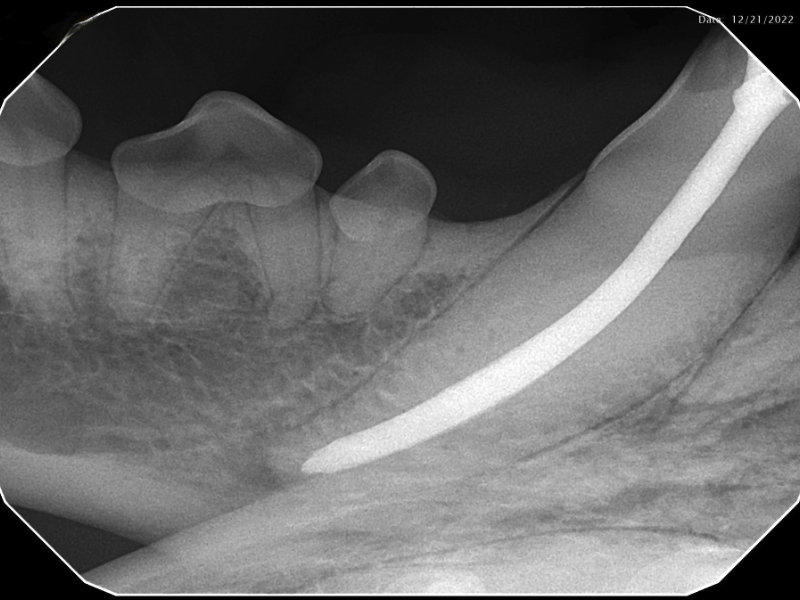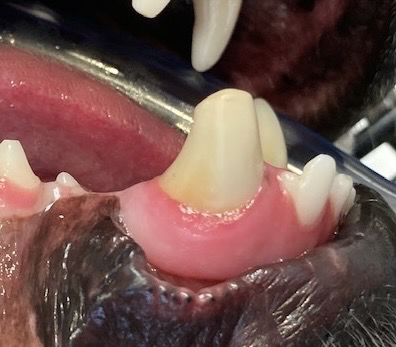
Endodontics / Root Canal Therapy
Root canal therapy is a common procedure performed in the mouth of dogs and cats. This treatment can have many benefits, but also some drawbacks. If done safely and well it can provide the patient with a pain-free mouth.
There are many indications for root canal therapy. These include (but are not limited to): fractured teeth, discolored teeth, non-vital (dead) teeth, and infected teeth. In some situations, extraction is the best choice for the patient or owner, but in many cases, treatments can be done to save the teeth.

What is Root Canal Therapy?
In simplified terms, root canal therapy is removal of the pulp (blood and nerve supply inside the tooth) within the root canal and pulp chamber of a tooth. The canals are then sterilized, filled, and sealed to prevent bacteria from creating infection. The main advantage of root canal therapy is maintenance of the tooth’s form and function. Also, it is usually less invasive than extraction. After treatment the tooth is no longer alive, but all of the structures supporting the tooth are still alive. In some cases, placement of a metal crown is advised to protect the tooth from further injury.
In pets, just like people, a small percentage of treated teeth may fail and require repeat treatment or extraction. Many cats and dogs do not tell us there are problems, thus regular rechecks under anesthesia are recommended to monitor the success of therapy.
If root canal therapy is needed and/or elected for treatment, there are some things that you should know.

Risks/Complications:
Aside from any anesthetic related risks, there may be pain for a day or two. Other risks include inaccessible or blocked canals, instrument separation/file breakage, adverse reactions to the materials used, restoration loss or fracture, further tooth fracture, continued or recurrent infection. Fortunately, most of these complications are rare.
What to Expect:
After treatment of one or more teeth, your pet will be on a soft diet for a period of time. Soaking your pet’s normal dry kibble in lukewarm water for 5-15 minutes is generally sufficient. Chew toys, tug-of-war, and rough oral play with other pets should be avoided for a couple weeks as well. Pets are typically placed on a pain reliever. There is typically no need for antibiotics to be dispensed, but in certain situations it could be recommended.


